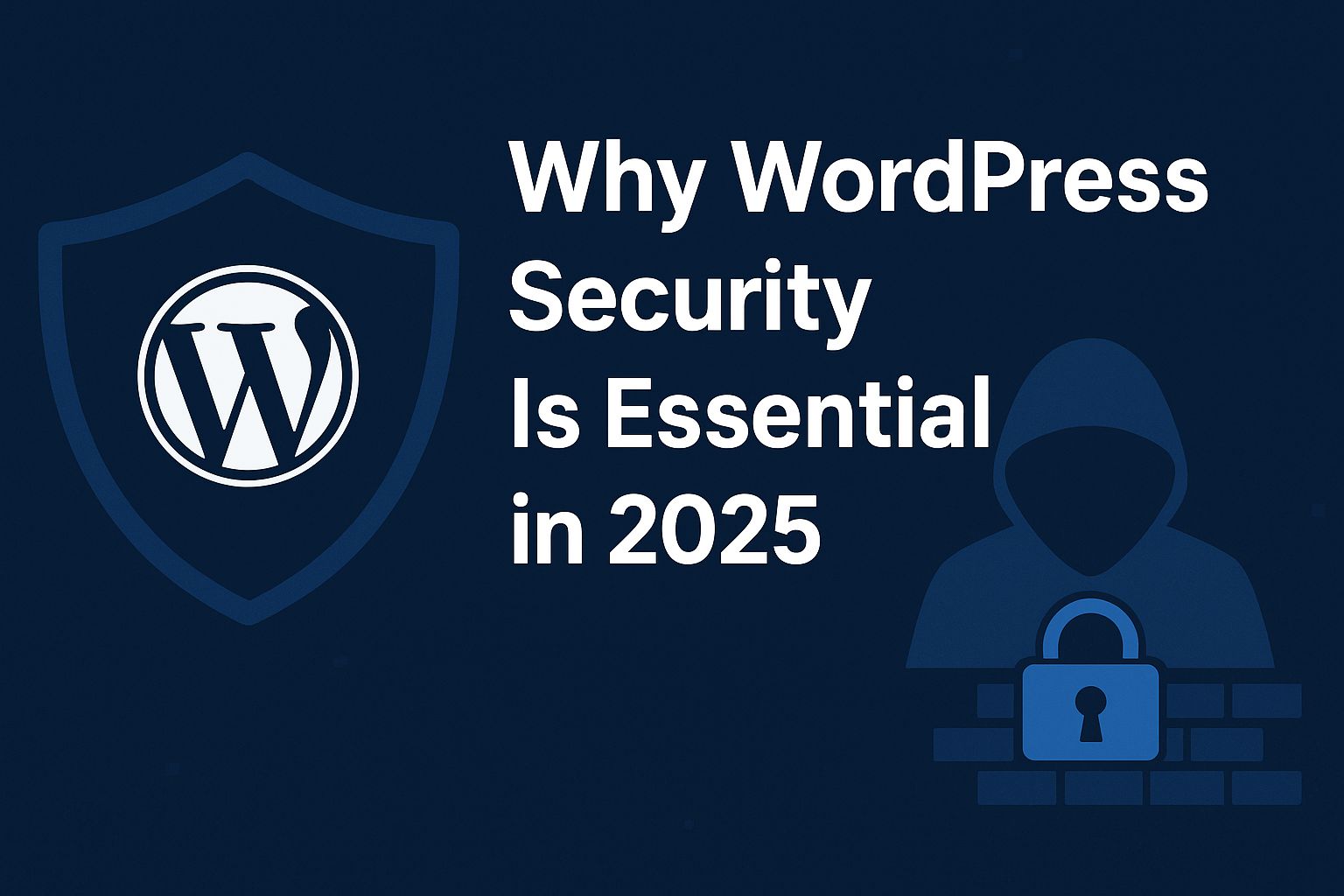Why WordPress Security Is Essential to Protect Your Site from Hackers in 2025 ?

In the digital world, WordPress website development has become the backbone of online business growth. However, with its popularity comes the risk of cyberattacks. Hackers are constantly looking for vulnerable sites to exploit, making WordPress security a non-negotiable aspect of your online presence.
If you’re running a business website, blog, or eCommerce store, knowing how to protect your WordPress site from hackers is crucial for safeguarding your data, reputation, and revenue.
What Makes WordPress Security So Important in Website Development?
When investing in website development, security is often overlooked. Yet, it’s one of the most critical components. Here’s why:
- Protects sensitive customer data (emails, payment details, personal information).
- Maintains brand reputation by preventing defacements or malware.
- Boosts SEO rankings since Google penalizes hacked websites.
- Ensures uptime and performance, keeping customers engaged.
A single breach can cause irreversible damage, especially for businesses relying on WordPress website development for growth.
Best Practices to Secure Your WordPress Website in 2025
1. Keep WordPress, Themes, and Plugins Updated
Outdated versions are the most common entry points for hackers. Regularly update your WordPress website to patch vulnerabilities.
2. Use Strong Passwords & Two-Factor Authentication (2FA)
Weak passwords are easy to crack. Use complex passwords and enable 2FA to add an extra layer of protection.
3. Install WordPress Security Plugins
Some of the best WordPress security plugins include:
- Wordfence Security – real-time firewall and malware scanner.
- iThemes Security – brute force protection and login security.
- Sucuri Security – monitors file integrity and blocks malicious traffic.
4. Limit Login Attempts
Restrict the number of failed login attempts to prevent brute-force attacks.
5. Secure Your Hosting Environment
Choose a reliable hosting provider offering SSL certificates, firewalls, and malware protection.
6. Regular Backups
Use plugins like UpdraftPlus or hosting backup services to ensure quick recovery in case of a breach.
7. Use HTTPS (SSL Certificate)
HTTPS secures data transmission and builds trust with your visitors. Google also favors secure websites in search rankings.
8. Disable File Editing in WordPress
Hackers can exploit theme or plugin editors. Disable file editing from your WordPress dashboard for added security.
Proven WordPress Security Strategies for Businesses
- Train employees on cybersecurity best practices.
- Monitor site traffic and logs for suspicious activity.
- Implement content delivery networks (CDNs) with security layers.
- Schedule regular security audits during WordPress website development.
